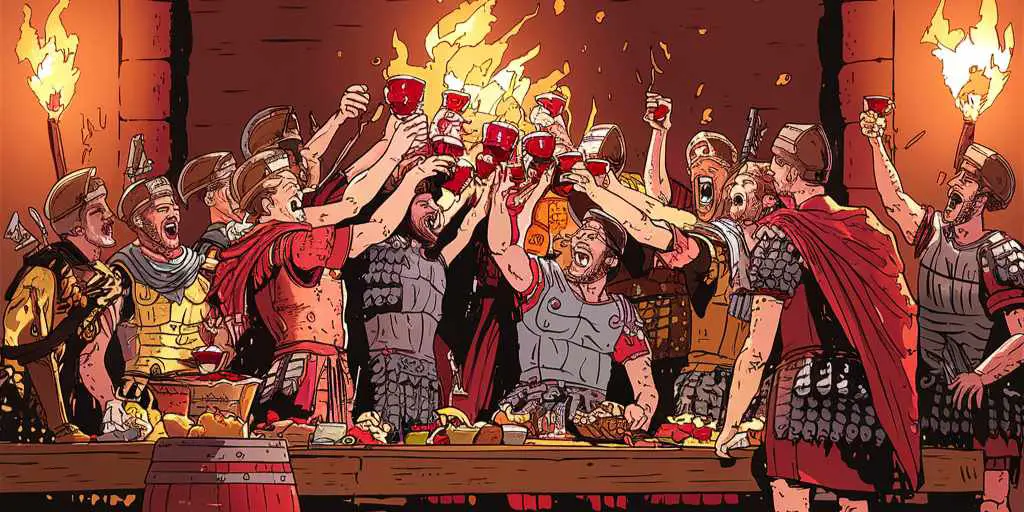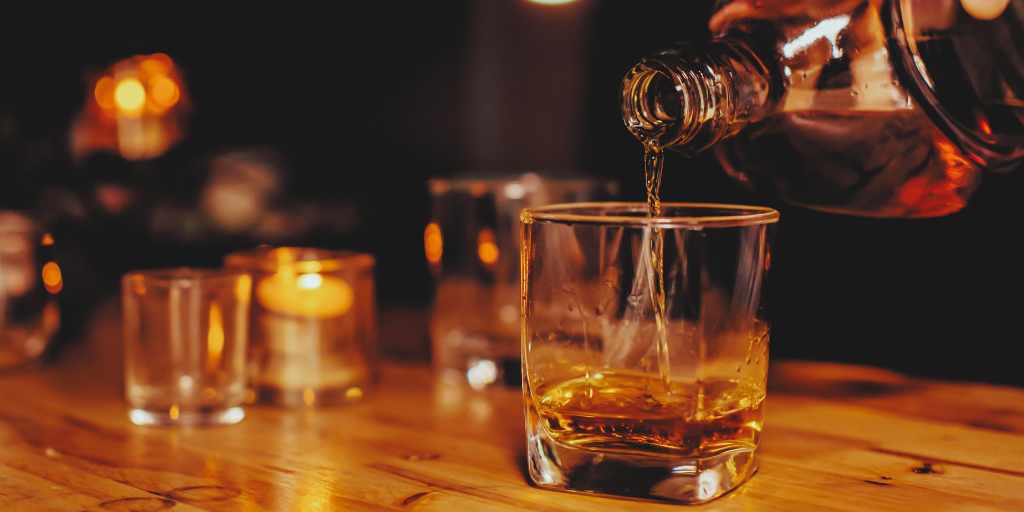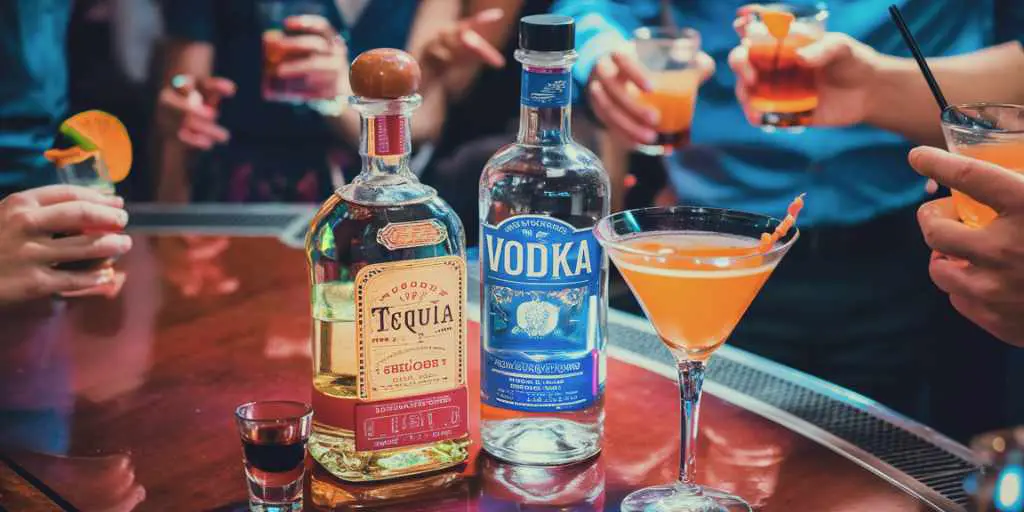Toasting with an empty glass has been considered bad luck throughout various cultures and historical periods. The act of raising a glass in honour of a person or occasion is a universally acknowledged gesture of celebration and good wishes.
However, when this is done with water or an empty glass, the gesture might instead be perceived as carrying negative connotations. In certain traditions, for instance, toasting with water is akin to wishing bad luck—or, more gravely, death—upon someone.
Key Takeaways
- Toasts with empty glasses are traditionally considered a bad omen.
- Cultural practices and military customs have influenced the negative view of toasting with water.
- The symbolism behind toasts may include trust, celebration, and life.
The origins of why toasting with water is seen as a faux pas trace back to cultural superstitions and military customs. For example, it is said that in ancient Rome, sharing a drink was a way to ensure your guests weren’t poisoned, thereby expressing trust and goodwill.
Toasting with something other than a spirited beverage could imply an absence of that trust.
Further, in some military traditions, such as those of the US Navy, a toast with water can be seen as a forbidding omen, potentially leading to a watery grave.
Cultural Origins of Toasting Traditions
Toasting traditions stem from ancient customs and have evolved into a complex mix of etiquette and superstitions globally, touching on aspects such as military history, specific beverages used in toasts, and the importance of eye contact during the ritual.
Ancient Roots and Military Origins
The practice of toasting has its roots in the actions of the Ancient Greeks and Romans, who would raise their cups to honour the gods and military alliances. Clinking glasses during a toast was believed to scare away evil spirits. Additionally, naval folklore suggests that toasting originated as a gesture of trust, where the clinking of glasses was meant to slosh liquid between cups to prove that none was poisoned.
Modern Interpretations and Etiquette
In contemporary society, toasting etiquette involves looking at the person while holding your drink to propose goodwill and celebration. Maintaining eye contact while toasting is considered a sign of sincerity, especially in countries like France, where avoiding looking at someone could signify bad luck or disrespect. In many formal settings, it is also customary to clink glasses as a sign of solidarity and friendship before taking the first sip.
Global Drinking Superstitions
Across different cultures, various drinking superstitions are designed to either attract good fortune or ward off bad luck. For example, in some parts of the world, it is believed that toasting with water in your glass could lead to negative consequences, as water is not seen as a celebratory drink compared to wine or other alcoholic beverages. This superstition could be due to the symbolic life-giving nature of water contrasted with the spirit-invoking qualities of alcohol.
The Significance of Beverages in Toasts
During a toast, the choice of beverage is significant. While wine glasses are typically raised during ceremonial toasts, water goblets may be used if alcohol is not appropriate. Superstition cautions against toasting with an empty glass or a non-alcoholic drink; however, this varies by culture. Historically, toasts were almost exclusively done with drinks of alcohol, specifically wine, due to its prevalence in ancient ceremonial feasts and communal gatherings.
Implications of Toasting with Water
When glasses are raised for a toast, pouring wine the choice of liquid can sometimes carry a weight of tradition and superstition. Notably, the act of toasting with water is entwined with notions of bad luck and seven years of bad sex, especially in certain cultures and settings.
The Notion of Bad Luck
The vague origins of the belief that toasting with water brings bad luck often point to naval traditions and superstitions. In some military customs, raising a glass filled with anything other than alcohol—particularly water—is seen as foreboding a watery grave for those participating in the toast. Reinforcing this outlook is Spain’s infamous toasting curse, suggesting that such an act brings the same horrific curse akin to wishing death upon oneself and others.
Social and Psychological Perspectives
Making a toast in a dinner party or a drinking session symbolizes good cheer and unity. Choosing to toast with water can not only be seen as a breach of tradition but also as a subtly disruptive act, potentially affecting the atmosphere of the gathering. Social etiquette often dictates that wine or another alcoholic beverage is used to honour the occasion properly, maintaining a level of formal respect and energy during the event. Furthermore, when raising a glass in settings like New Year’s Eve or to celebrate a significant event, maintaining eye contact and using the left hand to drink can be interpreted as additional layers of meaning and intention, often linked to trust and sincerity.
Frequently Asked Questions

This section addresses common curiosities and concerns regarding the act of toasting with non-alcoholic beverages, water, or an empty glass and the implications these practices carry in various cultures and superstitions.
Can toasting with a non-alcoholic drink bring bad fortune?
Some cultures believe that toasting with a non-alcoholic drink could bring bad fortune. This conviction is particularly strong in certain branches of the military, where traditions often dictate the nature of a toast.
Is it bad luck to toast with soda?
The belief that toasting with soda may bring bad luck is not universally held and largely depends on cultural context and personal beliefs. However, some do hold that any non-alcoholic beverage, including soda, is an inappropriate substitute during a toast and the act brings bad luck.
What are the implications of toasting with an empty glass?
Toasting with an empty glass is considered by many cultures to be in poor taste and, in some traditions, is thought to bring bad luck. This notion is rooted in various historical practices where an empty glass would symbolize a lack of content and sincerity.
How does Greek mythology interpret toasting with water?
In Greek mythology, the dead were often associated with water, specifically the waters of the river Styx. Thus, toasting with water is sometimes seen as an omen or linked with paying tribute to the deceased.
What does it mean to toast with water?
Is there a superstition associated with toasting with coffee or tea?
Superstitions around toasting extend to all beverages, including coffee or tea. However, these beliefs are less commonly held and are not as widespread as those regarding toasting with water or an empty cup.
What are the traditional rules around making a toast and eye contact?
Traditionally, one is expected to look at the individuals being toasted before and after taking a sip. This practice represents respect and sincerity in the gesture of toasting. your friends




